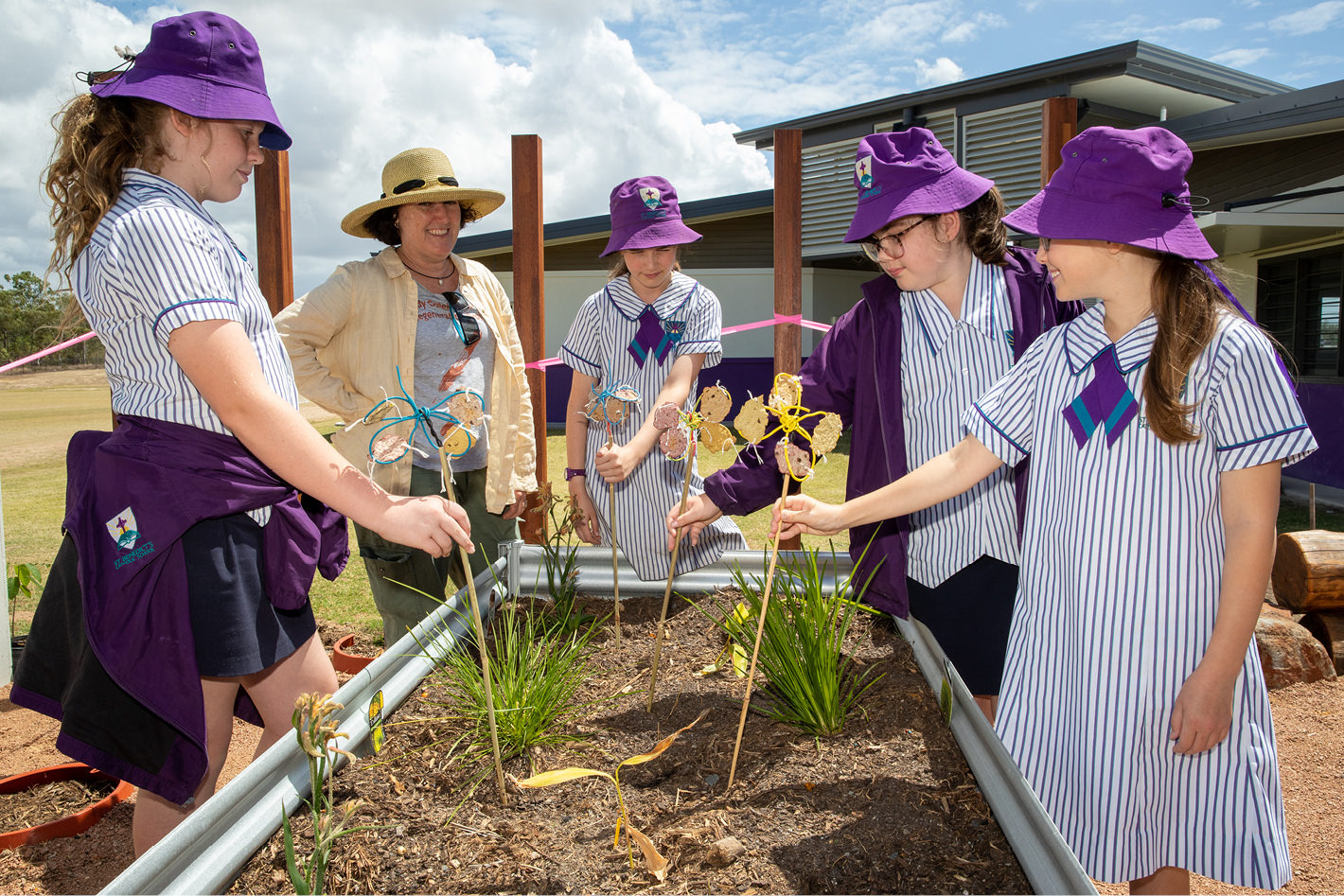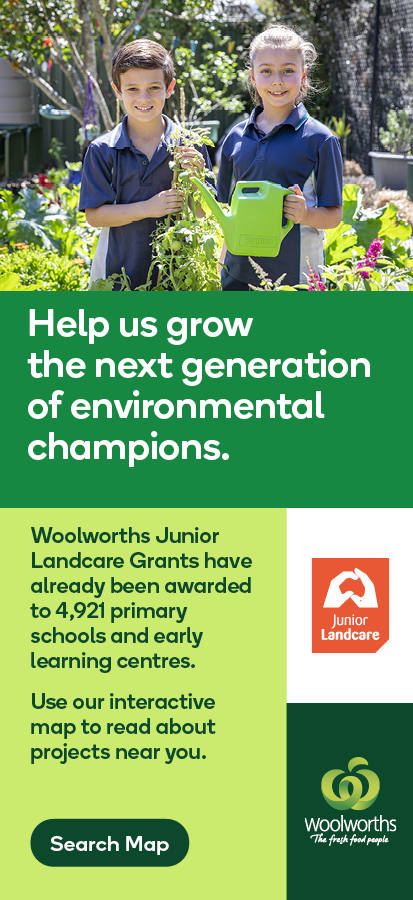CASE STUDY

Age Groups: 7-13
Grant Name: Junior Landcare Resilience Project
School: Yeppoon State School, St Benedict’s Catholic School and Oonoonba State School
Grant Sponsor:
Project Overview:
Queensland Landcare groups have worked closely together with local schools in Yeppoon and Townsville as part of the ‘Enhancing student resilience through creating butterfly gardens pilot project’ for Junior Landcare. Participating students have been building their resilience to natural disasters, like fire and flood, by designing and planting a butterfly garden at their schools, participating in yoga sessions and using their creative skills to make seed sculptures for the gardens.
In Yeppoon on Darumbal Country, Yeppoon State School were supported by Capricorn Coast Landcare Group (CCLG) and Capricornia Catchments Inc (CCI), whilst in Townsville on Thul Garrie Waja Country and Gurrumbilbarra Country, St Benedict’s Catholic School and Oonoonba State School worked with together with Coastal Dry Tropics Landcare Inc (CDTLI).
Overall, 70 year 4 - year 6 students attended the workshop programs over 3 weeks in Yeppoon and Townsville by researching and developing an understanding of how to create biodiverse habitats on their school grounds, while building their resilience at the same time. Students’ insightful reflections at the end of each workshop have revealed that have enjoyed learning and connecting to their place and space in this way.
Environmental Outcomes
To help support the learning processes, connections were made between the resilience of nature and the resilience of humans in each workshop. Using these analogies, along with tools for wellbeing resilience, helped to make deeper connections for the students.
As a result of participating, each school now has a butterfly garden that has had the knowledge and experience of landcare expertise in its development. Unique biodiverse habitats of butterfly-attracting plants now provide a great space for outdoor learning under the care of committed students who participated in the workshops.
The links built between the participating schools linking with experts from the landcare community will enhance development of future projects. Whilst the skills gained from the workshops have already helped empower students to foster their environmental stewardship with their peers and families.
“The kids were involved and embedded in the planning, execution and assessment of the garden in a really meaningful way said Shelly McArdle from Capricorn Catchments Inc.”
Educational Outcomes
Despite the challenges of COVID-19 in delivering the project in schools, these weekly sessions provided a welcome activity for students to get active outdoors and engage with nature.
Using the three principles of BEING, DOING and CREATING concept, developed by Capricornia Catchments Inc., the students have come together, firstly though weekly mindfulness practices incorporating yoga therapy techniques (BEING) to develop presence and mindfulness and calm the nervous system, and to encourage teamwork to help build connectedness, and physical strength/movement to encourage physical resilience and embodiment.
Through planning and planting out the butterfly garden, students were grounded in teamwork and connection to landcare activity (DOING).
Thirdly, students engaged an art activity to create butterfly shaped seed paper shapes to add a layer of beauty and decoration to their butterfly garden project (CREATING).
The design processes of the butterfly gardens were guided by the expertise of knowledgeable landcare staff, who supported the children in the research of the local native plant and animal species. Local plant and community landcare nurseries were used to source the plants for each garden, with the guidance of the landcare facilitators.
Butterfly species guidebooks were provided at each school to help build understanding and knowledge of the plants, as well as helping to build further understanding of butterfly habitats after the workshops were completed. Live butterfly chrysalises (cocoons) and a butterfly field guide offered the opportunity for students with learning about the life cycles of the animals they are encouraging to their garden.
Conclusion
“Students attention and eagerness grew as the weeks progressed and as the garden grows a little and matures, it will become a beautiful space for outdoor learning” said St Benedict’s Catholic Environmental Support Officer Ngaire Trigg.
This collaborative project, improving student wellbeing in Yeppoon and Townsville brought the landcare community together with school communities and many other local partners including Capricornia Catchments, Capricorn Coast Landcare Group, Coastal Dry Tropics Landcare Inc, Queensland Water and Land carers (QWaLC), James Cook University, Livingstone Shire Council, Townsville City Council, Keppel Coast Arts and Bunnings Townsville.
 Teachers & Educators
Teachers & Educators Youth or Community Groups
Youth or Community Groups